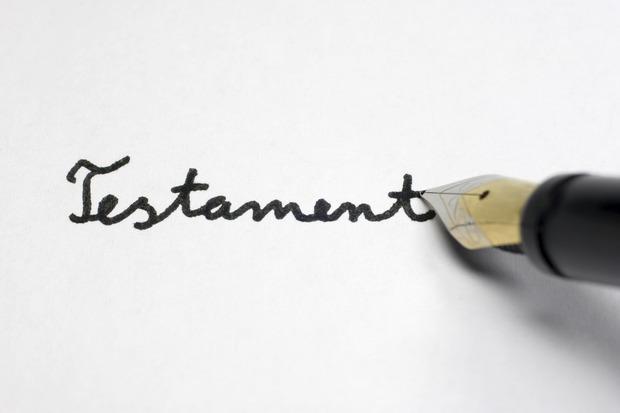If the will is drawn up by an incompetent person, the document must be considered invalid: this occurs due to minor age, disqualification or natural incapacity.
Consequences of a will of an incapacitated person
A subject unable can do testament? What are the effects produced by a will drawn up by a person incapable of acting, as in the case of a minor or a disqualified person?
In any case the written will from an incapable person will always result invalid.
It is also legitimate to ask what happens if the will is drawn up by a person who is merely incapable of understanding and wanting.
Will of an incapacitated person – photo Getty Images
Let’s look in more detail at the underlying reasons and how these situations are regulated by the legislator.
Will: what are the essential elements
Let’s start with the rule that, within the scope of the Civil Code, defines the will.
Pursuant to thearticle 587 cc, comma 1by will we mean a revocable act by which, for the time in which he or she has ceased to live, someone disposes of all or part of his or her assets.
 Will and inability to act – photo Getty Images
Will and inability to act – photo Getty Images
Based on the provisions of the law we are faced with a unilateral legal act containing the testator’s unilateral declaration of will.
This will be followed by the declaration of acceptance by the person or persons called to the inheritance.
The latter will take place when the testator is already dead so there will not be, as in the case of the donation which is a contract, a meeting between the two declarations of will.
Such an act is by definition revocableas the testator can revoke it at any time to avoid producing its effects.
It can therefore be revoked up to the last moment before the death of the deceased and the revocation will be valid even if it becomes known after acceptance by the heir himself.
Even the modifies the his content it can take place up to the last moment of the testator’s life. The revocability of the will is placed by the legislator to safeguard testamentary freedom.
Not even the interested party can renounce this freedom.
In fact, every clause you state irrevocable il testament or which declares one of its clauses or provisions to be non-modifiable, is to be considered null and void.
The will can be revoked expressly, i.e. with a public deed or with declaration of revocation contained in another will.
Alternatively, the will can be revoked tacitly, for example destroying the document previously drawn up.
When the will is invalid
In order to draw up a will it is necessary to have the ability to act.
This means, on the basis of the provisions of Article 2 of the Civil Code, the ability of the subject to carry out legal acts, through which to acquire rights or assume duties.
It presupposes a human being capable of looking after his own interests. In fact, it is achieved with the achievement of age of majorityi.e. with the completion of the 18th year of life.
It is assumed that only now is the subject able to look after his own interests and understand the extent of the acts he has performed.
 Invalid will – photo Getty Images
Invalid will – photo Getty Images
The ability to act that has been acquired with age, however, can be lost at a certain point in one’s life if certain conditions occur.
In fact, the adult may find himself in a condition of habitual mental infirmity which makes him incapable of looking after his own interests.
In these cases he can, by sentence, be forbiddeni.e. deprived of the capacity to act.
A state of disqualification which leads to the loss of the capacity to act is provided for by the penal code for those who have been sentenced to life imprisonment or imprisonment for a period of no less than 5 years.
On the basis of what has been said so far we can say that the minor or the interdicted person, due to lack of capacity to act, cannot draw up a will and if they did so it would be voidable, as expressly provided for by thearticle 591 of the civil code.
Invalidity of the will due to incapacity of understanding and will
A will that is drawn up by an adult affected by a will can also be contested for invalidity natural inability to understand and will but that it was not banned.
The act implemented will be voidable following the presence of a defect of the will.
The inability to understand and will is one transitory state of impairment of the psychic faculties experienced by those who are unable to understand the meaning of their own behavior and determine themselves accordingly.
It must be verified from time to time. It’s the typical case of one elderly person whose inability to understand and will must be rigorously proven in order to challenge the will.
The action of annulment may be exercised, under penalty of prescription, within a period of time 5 years from the heirs.
Source: www.lavorincasa.it


